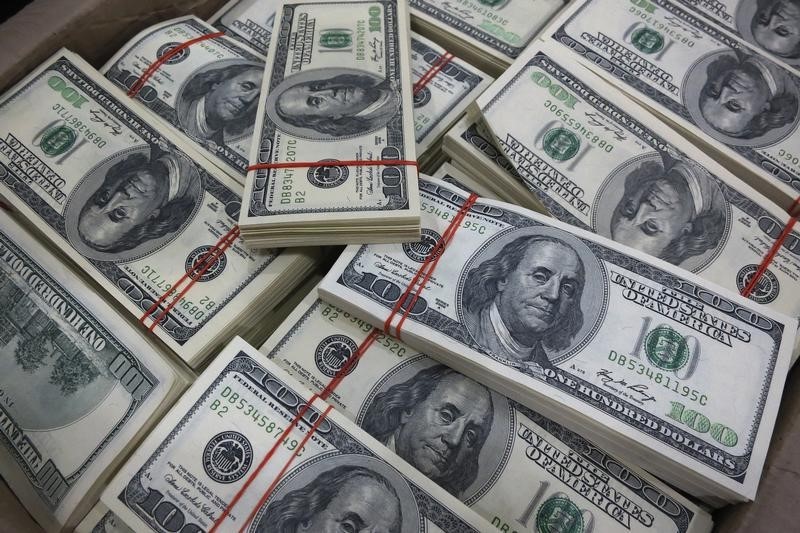By Peter Nurse
Investing.com - The U.S. dollar edged lower in early European trade Thursday, handing back some of the previous session’s gains after better-than-expected U.S. retail sales pointed to more interest rate hikes by the Federal Reserve.
At 02:00 ET (07:00 GMT), the Dollar Index, which tracks the greenback against a basket of six other currencies, traded 0.2% lower at 103.675, after hitting a near six-week high of 104.11 in the previous session.
U.S. retail sales rebounded sharply in January after two straight monthly declines, rising 3.0% on the month compared with December’s 1.1% fall, data showed Wednesday.
This, adding to the stronger than expected U.S. consumer inflation earlier in the week, was seen as largely cementing the case that the Fed still has further to go in tightening rates.
However, they have also illustrated the resilience of the world's largest economy.
Wall Street closed higher Wednesday as investors appeared to be betting on a relatively soft landing for the U.S. economy, where steady growth and low unemployment exist alongside slowing inflation and higher interest rates.
Goldman Sachs has this week cut its estimate of the chance of a U.S. recession in the next 12 months to 25%, from 35%.
This increased confidence has translated into a weaker dollar in Thursday’s session as traders bought into the lifted risk sentiment.
There are a plethora of U.S. economic data releases due Thursday, including January PPI, housing starts, jobless claims and the Philly Fed index.
“We think data will remain the key driver for the dollar and the global risk environment, as the depth of the U.S. economic slowdown is still a key driver of rate expectations, especially when it comes to the timing, size and pace of Fed easing in the medium term,” said ING analysts, in a note.
Elsewhere, EUR/USD rose 0.1% to 1.0700, boosted by President Christine Lagarde reiterating on Wednesday that the European Central Bank intends to raise borrowing costs by another 50 basis points next month.
GBP/USD rose 0.1% to 1.2034, edging higher after sliding more than 1% in the previous session. This followed data released on Wednesday showing the annual headline rate of U.K. inflation slowed more than expected in January, easing the pressure on the Bank of England to continue its rate-hiking cycle.
USD/JPY fell 0.1% to 133.94, with Kazuo Ueda, the government's nominee for BOJ governor, set to appear at a confirmation hearing in parliament next week.
The risk-sensitive AUD/USD rose 0.2% to 0.6915, reversing earlier losses after data showed Australia’s labor market unexpectedly shrank in January.
